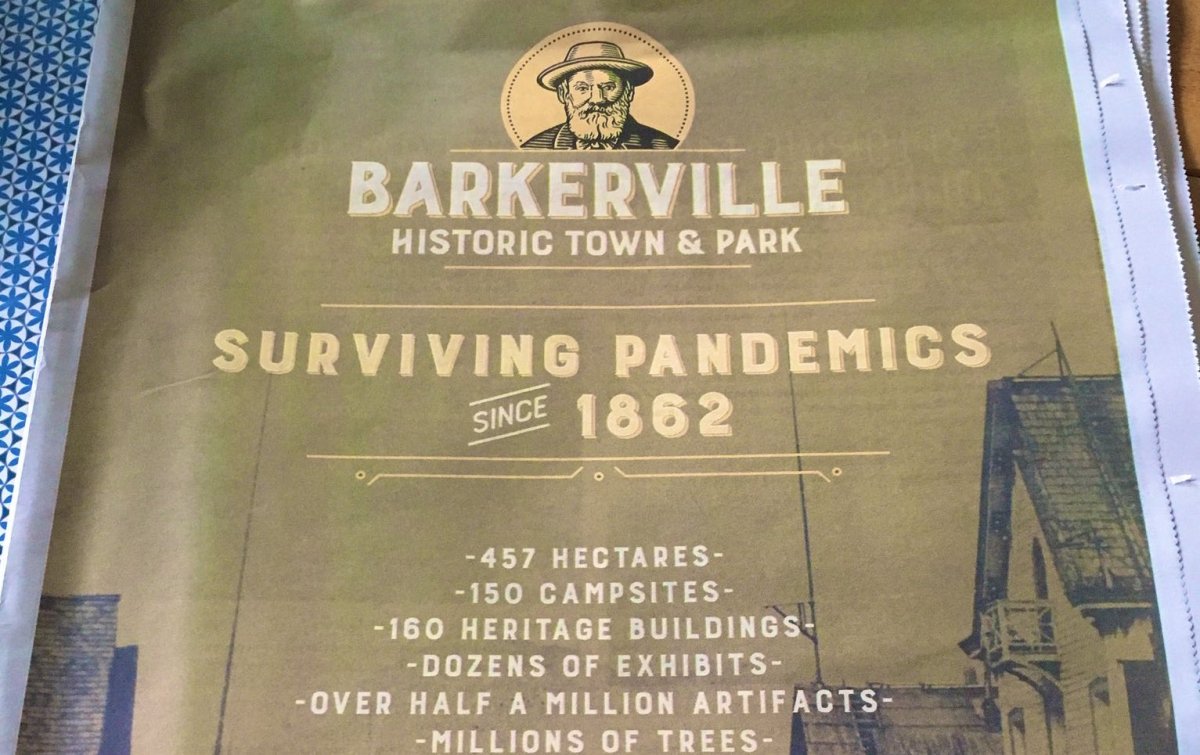A tourist attraction that offers a window into B.C.’s gold rush history is apologizing over an ad campaign that makes light of the COVID-19 pandemic.

The advertisement for Barkerville Historic Town and Park reads: “Surviving pandemics since 1862.”
The ad caught the attention of several historians, as well as archaeologist Joanne Hamond, who took to social media on Friday to say that “in 1862-3, a smallpox epidemic spread by miners bound for the Cariboo killed over 60 per cent of Indigenous people in B.C., making way for the settlement and exploitation of unceded lands that continues today.
“Indigenous death is not a marketing ploy.”
On Saturday, Barkerville, which is about an hour east of Quesnel, issued a public apology, saying that the intent of the ad had been to let people know about social distancing measures in place, making it safe for tourists to visit.

Get daily National news
Barkerville reopened in June with an occupancy of 200 visitors, by reservation only.
“We see now that our choice of words could be interpreted as Barkerville making light of one of the darkest chapters in the history of the Indigenous peoples of British Columbia,” wrote Kate Cox, Barkerville’s CEO.

“We did not mean to appear as though we were celebrating disease, nor the devastation caused by historical epidemics. We acknowledge that we have inadvertently done just that, and unequivocally apologize for our error.”
Cox goes on to say that Barkerville makes an effort to raise awareness about the legacy of the smallpox epidemic.
She says the attraction is now in the process of talking with Barkerville’s Indigenous interpreters and regional partners “about the ad and how we might now use our mistake as an opportunity to engage in a broader, more uncomfortable conversation.”
Global News has requested comment from the local Lhtako Dene First Nation and the Tsilhqot’in National Government.
- Michael Kovrig reflects on ‘brutally hard’ Chinese detention: ‘You’re totally alone’
- TD Bank moves to seize home of Russian-Canadian jailed for smuggling tech to Kremlin
- U.S. Election 2024: Questions arise over groups door-knocking for Donald Trump
- Conservatives set to table non-confidence motion Tuesday. What to expect








Comments